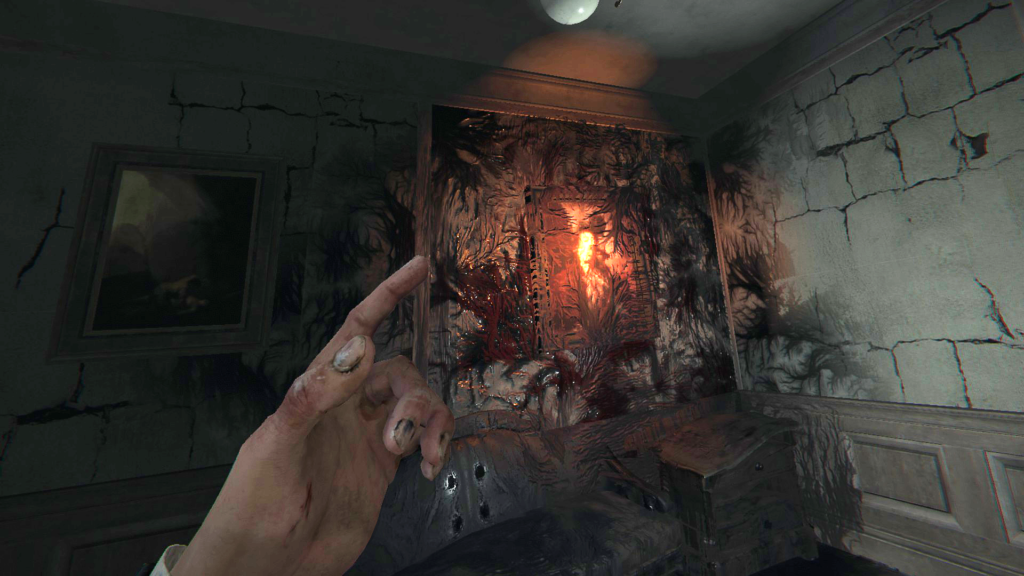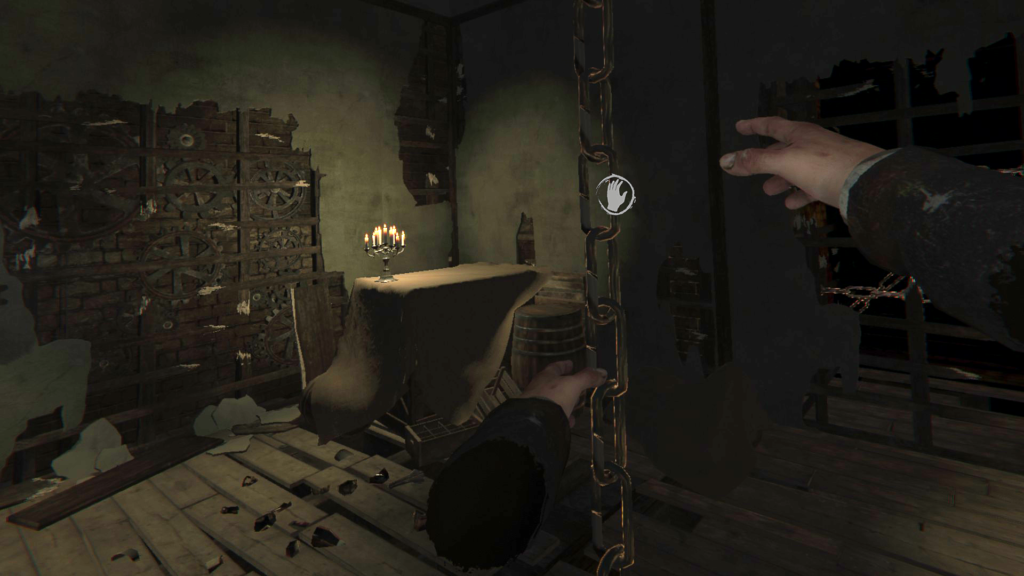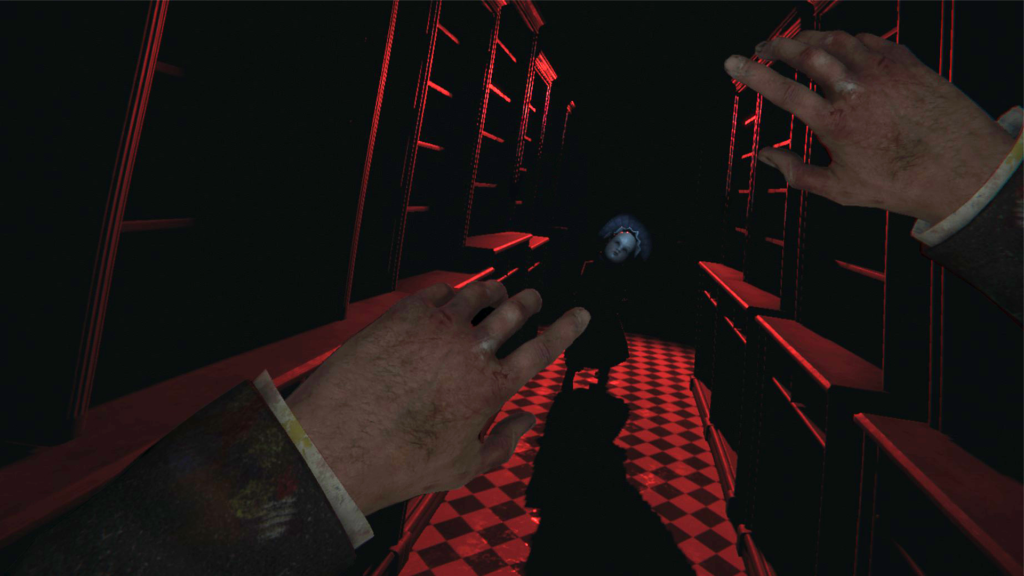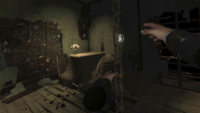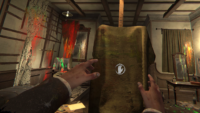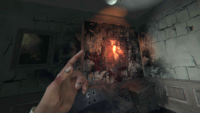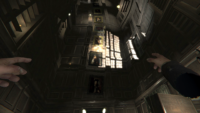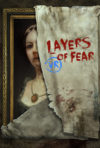Game: “Layers of Fear VR”
Layers of Fear VR

Let me tell you a little about myself; along with my love of video games, I’m a massive fan of gory horror movies. The ones where there’s a slow, methodical killer on the loose who always manages to kill unwitting teens, despite never breaking a sweat – those are my jam. So I can handle my jump scares, werewolves, aliens and body dismemberments. but when it comes to physiological horror with atmospheric buildups and unbearable tension, I fall apart faster than an M. Night Shyamalan movie. I cannot handle characters being either haunted or terrorised by their own insanity. So when Bloober Team reached out and asked us to test their first-person psychological horror Layers of Fear VR, a game about an artist being terrorised by his own insanity and ghostly beings, I felt it was time to strap on the PlayStation VR headset and my big boy pants.
It was time to nut up or shut up.
At A Glance
| Visuals | 7/ 10 |
| Sound | 7/ 10 |
| Gameplay | 5/ 10 |
| Overall | 7/ 10 |
| Positives | + Engaging, mind bending story |
| + Well crafted sense of tension throughout | |
| + Unexpected jump scares | |
| Negatives | – Awkward control scheme |
| – Lack of polish | |
| – Can be repetitive |
As all good horror films start, you arrive at a big stately home in 1920s New York, on a particularly stormy night. Knowing that the house is yours because you were a successful artist is somehow not comforting, but I can’t quite tell you why. We quickly learn that you had a wife and daughter but they are no longer at the house. After a brief introduction to the home you set about crafting your latest portrait, planned to be your magnum opus. But our artist begins his descent into madness shortly after seeing the blank canvas and the fun and games begin. You gradually unravel what could have happened to your family, but being a horror game, pieces of information are deliberately ambiguous in order to allow for multiple endings.
The main aim of the game is to explore your mansion and gather the materials to create the masterpiece you have been obsessing over by solving simple puzzles. When you start exploring the mansion it seems normal enough, walking corridors with an air of determination to finally get this painting done. This new found motivation lasts until you reach your first room however, as unnatural happenings start occurring almost immediately. They start relatively innocently; doors slamming, writing on walls, and paintings changing shape, but as you progress objects start being thrown and entire rooms begin to change shape. Needless to say that as you progress, you realise that thing you thought you saw out of the corner of your eye – well, it was there.
Layers of Fear VR has a relatively short run time of around five hours, spanning six chapters. It does pack a lot in and as a result, you are a nervous wreck by the end of the game due to the sheer amount of jump scares and ghostly encounters. While some of the horrors are predictable (going against the advice scrawled on the walls isn’t recommended), it did leave me anxious to such an extent I dreaded taking off the VR headset for fear that something had sprung out of the TV.
While you’re being scared within an inch of your life, it has to be said that Layers of Fear VR is certainly a game to be admired visually. The mansion itself has a Victorian-gothic appeal and there is always something to look at, from huge oil paintings to random notes strewn across the place, and these visual distractions are a godsend considering you’ll be spending most of the time walking through corridors. Any ghosts you may encounter are joyfully gruesome, and the entire aesthetic goes hand in hand with the tension and atmosphere being created. We do want to note that our playthrough was on a base PlayStation 4. PS4 Pro and PS5 players might even get a boosted experience due to the consoles’ additional power.
A little disclaimer though, as with any virtual reality game, some players can experience motion sickness while wearing the headset. Layers of Fear VR has options in place to help mitigate any sickness, but it is worth mentioning that players sensitive to motion sickness caused by VR play – particularly games that involve moving around environments – may feel a little queasy during this in game. If this is the case, we’d suggest going for the standard, non-VR version.
And it’s not only motion sickness that might drive you to the 2016 original instead of the VR version. The controls require you to use two PlayStation Move controllers rather than the trusty DualShock 4. On the face of it, this makes sense – as you manipulate and interact with objects with a wave of either controller Layers of Fear VR creates an immersive experience. Something as simple as closing a door, or picking up a photo will always feel more satisfying when acting it out rather than simply pressing a button. The troubles come when it comes to moving around.
Playing the game, it’s obvious that developers had to choose which part of the immersive experience to focus on – the interaction with objects or having slicker movement. As the Move controllers don’t feature any kind of analogue stick you’re forced to press buttons to walk and turn. Turning in particular feels both awkward and antiquated, as you slowly rotate one way or another like a 1990s sentry NPC. Of course, this is simply an unfortunate downside of the hardware and not something Bloober Team or VR porting specialists Incuvo could control. If a standard controller was implemented, there would be nothing differentiating it from the standard version, save that motion sickness of course.
When you’re not battling against simply walking, I did encounter a few technical glitches where I got stuck behind chairs, in a large trunk, and even behind a fireplace. These were by no means frequent and restarting isn’t too much of a faff but it did detract from the overall presentation and experience, resulting in a feeling that there was a lack of polish.
Despite all of the technical challenges, Layers of Fear VR is a game that succeeds in its mission of crafting an engaging story that terrifies players. Yes, it can get a bit samey, with repetitive corridors and straightforward puzzles, but like any good horror game, this just adds – dare we say it – another layer to the proceedings. The constant changes to the artist’s state of mind, his unreliable narrative, and even little things like jumping out of your skin when a rat scurries past your feet, all culminates in a well-crafted, atmospheric experience that’s chock-full of surprises.
Coming from someone that doesn’t typically enjoy this kind of horror, I discovered that the scariest thing about Layers of Fear VR wasn’t what I expected it to be. The horrors unfolding in-game aren’t the most spine-chilling, in fact – after I’d gotten over the initial hesitation – they were rather enjoyable. The limitations of the hardware however were frightful, meaning that the game is just two analogue sticks away from being a must-own title for VR players. Sadly, the things that let Layers of Fear VR down are outside the control of the developers, but if you power through the technical issues, you’ll find a game that gives a satisfactory return on your investment just on the story alone.
In the interest of full disclosure, the publisher provided VGamingNews with a copy of the game in order to conduct this review.


